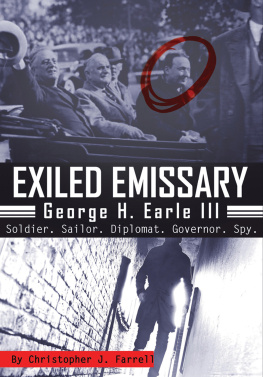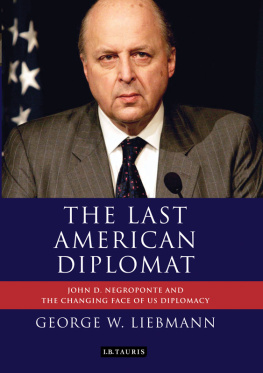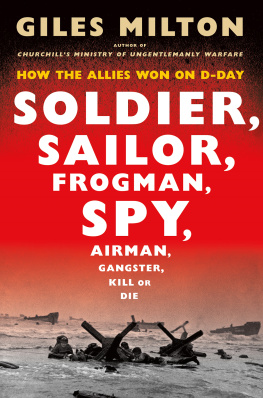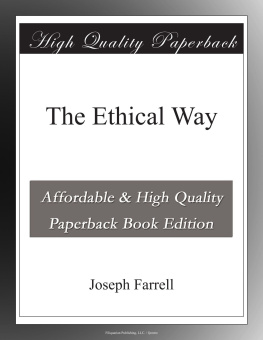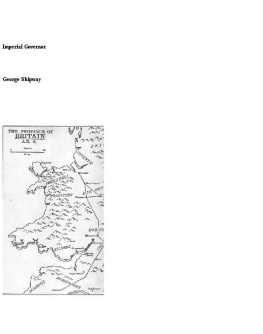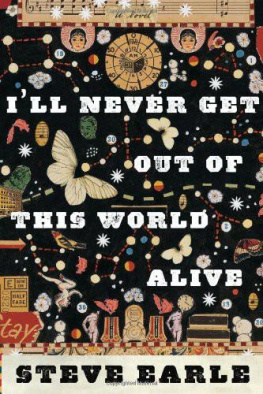Exiled Emissary: George H. Earle III
Soldier, Sailor, Diplomat, Governor, Spy
Christopher J. Farrell
Exiled Emissary: George H. Earle III
Soldier, Sailor, Diplomat, Governor, Spy
Christopher J. Farrell
Academica Press
Washington~London
Library of Congress Cataloging-in-Publication Data
Names: Farrell, Christopher J. (author)
Title: Exiled emissary : george h. earle III, soldier, sailor, diplomat, governor, spy | Christopher J. Farrell
Description: Washington : Academica Press, 2021. | Includes references.
Identifiers: LCCN 2021933344 | ISBN 9781680538861 (hardcover) | 9781680538885 (e-book)
Copyright 2021 Christopher J. Farrell
Dedication
For Shea
The inspiration, the faith, and the future.
Contents
Introduction:
A Man of His Convictions
Chapter 1
Earle and FDR
Chapter 2
February 10, 1918 USS Victor
On patrol off Cape May, New Jersey
Chapter 3
Philadelphia, Pennsylvania
Chapter 4
Vienna, Austria
Chapter 5
Harrisburg, Pennsylvania
Chapter 6
Sofia, Bulgaria
Chapter 7
Casablanca
Chapter 8
Istanbul
Chapter 9
Canaris and von Papen Approach Earle
Chapter 10
Earles Reporting to FDR from Istanbul
Chapter 11
The Earle Case
Chapter 12
Emissary on Thin Ice May 1944 to March 1945
Chapter 13
Confrontation: Exile of the Emissary
Chapter 14
The Postwar Years
Epilogue
Context and Perspective
List of Illustrations
Acknowledgments
My grandmother, Helen FitzGerald, inspired this book in the summer of 1967. She first told me, as a young boy, about how my grandfather, Jack FitzGerald, had worked with Governor George Earle to help Jewish businessmen and their families escape from Nazi Germany in 1936. Jack FitzGerald was a founding member of the New York Coffee & Sugar Exchange, and a commodities broker. George H. Earle III was the president of Flamingo Sugar Mills in Philadelphia, Pennsylvania and Jacks client, business partner and close friend.
Decades later, I have had the great privilege of telling the story of a remarkable man of character and conviction. Research was an on-again, off-again project that spanned many years. It included trips to the National Archives and in-person talks with George Earles son, Lawrence, as well as other Earle family members.
The manuscript was written between May and November 2020. I wrote it with the encouragement of Dr. Shea Bradley Garrison, PhD. I had told Shea of my boyhood memories, and my years of research. She found the George Earle story fascinating and compelling urging me to pick-up where I had left off and get to work writing. I am deeply indebted to Shea for the inspiration to write, the faith in me and the Earle story, and her unwavering support, insightful advice and steadfast devotion. Without Shea there would be no book.
I have several other people to thank for their time, information, encouragement, suggestions and assistance: Melanie Earle Lynagh & family; Jackie Earle-Cruickshank; Edward Wharton Shober; Christopher and Rachel Titus; COL Randy Williams, USA (Ret.); John J. Dziak, PhD; David Thomas, PhD; Diana West; and Juliana Geran Pilon, PhD.
We are all indebted to the work and memory of M. Stanton Evans (Stalins Secret Agents: The Subversion of Roosevelts Government) for his nearly exhaustive treatment detailing Soviet penetration of the Franklin Delano Roosevelts administration. Evans names and backs it all up with scrupulous research. We now know the agents, fellow travelers, cooperators, sympathizers, and dupes: Alger Hiss; Harry Dexter White; Harry Hopkins; Henry Wallace; Lauchlin Currie; Owen Lattimore; David Niles; and Henry Morgenthau, among many others known and still unknown.
Likewise, we have the thoughtful, penetrating analysis of Diana West (American Betrayal: The Secret Assault on Our Nations Character) that ties the strands of what she calls the Lost Narrative of history together in a way that fills in many historical blanks and gaps, whether deliberately air-brushed from the homogenized Court histories, or simply overlooked. Her treatment of Earle, Roosevelt, the peace initiative, and the Katyn Forest Massacre are essential reading.
I am grateful to serve as the channel for this important chapter of overlooked history.
Then I heard the voice of the Lord, saying, Whom shall I send, and who will go for Us? Then I said, Here am I. Send me!
Isaiah 6:8
Foreword
John J. Dziak, PhD
The Roosevelt era of the New Deal and World War II may appear to be an artifact of history to many, but it emits a resonance well into the 21st Century. Like a specter its effects still dwell in our culture, politics, diplomacy, and intelligence history, often in ways unforeseen. One of these unforeseen ways is the appearance of Christopher Farrells book, Exiled Emissary: George H. Earle III Soldier, Sailor Diplomat, Governor, Spy, a fast moving and revelatory account of an accomplished politician, polymath, and successful businessman who served President Franklin D. Roosevelt during the years of the New Deal and the Second World War.
A man of strong conviction and independent spirit, Earle served with distinction as a naval officer in World War I. He received the Navy Cross for his actions while commanding a motor patrol boat disabled by an internal explosion and fire. This experience, his energy, and his years in business and politics helped to propel him (despite his Republican pedigree) into serving the Roosevelt administration as a diplomat in the 1930s, and Assistant Naval Attach in Turkey during World War II.
This latter part of his service to FDR is especially riveting because of its intelligence dimensions, both at the time of Earles service and in the post-World War II years. In accounts of Earle and of that period, these intelligence dimensions werent that manifest; their opacity being driven by the very nature of the intelligence craft and generally hidden or ignored Soviet subversive operations, well before the advent of the Cold War. But Earle, possessed of a natural spirit, saw through the maze of bureaucratic and diplomatic doubletalk, and focused in on the hidden potentialities for US national interests -- that got him on the wrong side of high politics, both foreign and US.
It took a former professional US intelligence officer, Christopher Farrell, to winkle out the obscure and connective threads of the intelligence games, subversion, arcane diplomacy, and lost opportunities that Earle both witnessed and partook thereof during World War II, and in the controversies of the post-war period.i Farrell, possessed of access to Earles papers, but also an astute student of Twentieth Century totalitarian history and associated intelligence, and counterintelligence operations, pulled Earles story together in a way that sheds different light on several events whose implications still live with us. Without repeating Farrells superb narrative, it is worth mentioning several of these to get a sense of Earles instincts for strategic moments in statecraft and their intelligence connections.
Earle had strong faith in FDR and basically served as FDRs personal emissary, despite his lower-level Assistant Naval Attach status in Turkey, a status that functioned as a useful cover. Earle could communicate directly with the President but, as events revealed, that was done through Harry Hopkins, FDRs close advisor and confidante. It turns out that given Hopkins pro-Soviet attitude and the deep controversies surrounding his probable relationship to Soviet intelligence, Earle found that his communications to FDR were not registering the way he had hoped. And it wasnt only Hopkins. Roosevelt was surrounded by Soviet sympathizers and agents of influence who exercised far greater influence with FDR than an outsider like Earle. On top of that, FDR was not at all sympathetic to data, assessments, and intelligence that pointed to Stalins massacres, his other crimes, and his intelligence operations against the US both before and during World War II. Christopher Farrells broad-ranging narrative lays this all out in compelling detail.

